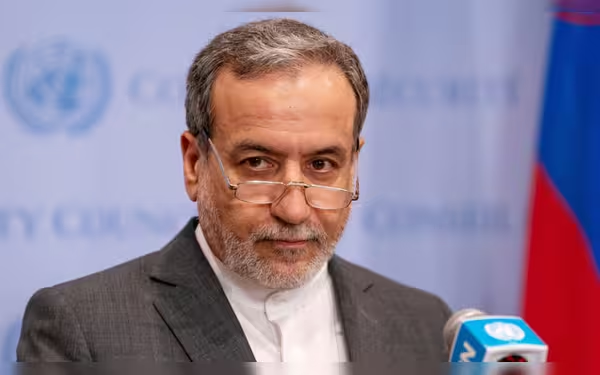Saturday, November 16, 2024 05:41 PM
Iran Accuses Israel of Using US Bombs in Beirut Conflict
- Hezbollah leader Hassan Nasrallah reportedly killed in airstrike.
- Israeli military claims elimination of senior Hezbollah leaders.
- Escalating violence raises fears of broader regional conflict.
 Image Credits: arabnewspk
Image Credits: arabnewspkHezbollah leader Hassan Nasrallah killed in Israeli airstrike, escalating tensions in Beirut amid fears of broader conflict.
In a significant escalation of the ongoing conflict between Israel and Hezbollah, the Israeli military has confirmed the death of Hezbollah's leader, Sayyed Hassan Nasrallah, following a targeted airstrike in Beirut. This incident marks a critical moment in the long-standing tensions between the two parties, which have intensified in recent weeks amid the backdrop of the Gaza war.
On Friday, the Israeli military conducted a precise airstrike on Hezbollah's leadership meeting in Dahiyeh, a southern suburb of Beirut. The attack reportedly resulted in the deaths of several high-ranking Hezbollah commanders, including Ali Karki, the Commander of Hezbollah’s Southern Front. The Lebanese Health Ministry reported that the strikes killed at least six individuals and injured 91 others, while also causing significant destruction to residential buildings.
Following the airstrikes, Hezbollah vowed to continue its fight against Israel, asserting that it would not be deterred by the loss of its leaders. The Israeli military claimed that "most" senior leaders of Hezbollah had been eliminated, a statement that has not been confirmed by the group itself. The ongoing violence has led to a heavy barrage of airstrikes from Israel, while Hezbollah retaliated by launching rockets towards Israeli territories.
The situation in Beirut has become dire, with many residents fleeing their homes in search of safety. Reports indicate that shelters in the city center are overflowing, and families are resorting to sleeping in public squares and on beaches. The streets of the southern suburbs are eerily quiet, filled with smoke from the airstrikes, as thousands of people have evacuated the area.
As the conflict escalates, fears are growing that it could spiral into a larger war, potentially involving Iran, Hezbollah's main ally, and the United States. The Israeli military has been mobilizing additional reserve soldiers in response to the heightened tensions, indicating that the situation remains volatile.
Israeli Prime Minister Benjamin Netanyahu has defended the military actions, stating that Israel has the right to protect its citizens and eliminate threats posed by Hezbollah. Meanwhile, Hezbollah has denied that any of its weapons depots were located in the buildings targeted by Israeli airstrikes, further complicating the narrative surrounding the conflict.
As the situation continues to unfold, it is essential for the international community to monitor developments closely. The loss of life and the destruction of homes in Lebanon highlight the urgent need for a resolution to the conflict. The ongoing violence not only affects those directly involved but also has broader implications for regional stability and peace.
The recent airstrikes and the death of a prominent leader like Hassan Nasrallah signify a turning point in the Israel-Hezbollah conflict. As both sides prepare for further confrontations, the hope for a peaceful resolution seems increasingly distant. The world watches with bated breath, hoping for an end to the violence and a return to stability in the region.













